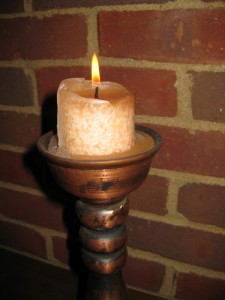The forty days of Lent, a time of spiritual preparation leading up to Easter, begins next week on Ash Wednesday. So I’m considering a discipline to take up for the next few weeks, though I have to admit that the word “discipline” feels pretty oppressive right now.
Back when I observed Lent by giving up something, such as desserts, I was glad for the reprieve on Sundays—they aren’t counted in the forty days of fasting. One of the best results was that Sunday became particularly joyful. Maybe that’s reason enough to go the route of sacrifice.
But I approach the Lenten season differently now. I see it as a time for study, or service, or entering into a new spiritual practice.
There are many great ideas for Lenten practices available. John Arnold’s ideas for Lent at The Practical Disciple is a good place to start. I especially like his innovative approach of carrying out forty bags of excess stuff in forty days, literally making room for the movement of the spirit in our lives.
But this year, I need a tiny idea. I’m not sure I’m up to anything more. A new project or a new practice simply feels too daunting.
Reading a psalm a day is one possibility. I could keep my bible on the table and read while I have coffee in the morning. It’s simple, not intimidating, and the psalms are rich in imagery, language, and spirit.
Another possibility is a practice I’ve recently encountered in several different places. If you’ve ever heard about a wonderful book from three different friends in the same week, or encountered a new idea that immediately come up in another context, you’ll understand why metta has my attention.
It comes from the Buddhist tradition, and is translated into English as lovingkindness. It’s a simple meditation, connected to the breath.
Breathing in, I cherish myself.
Breathing out, I cherish all beings.
Its practitioners find that metta cultivates acceptance, openness, connection, and charity—lovingkindness. Mary Jaksch at Goodlife Zen teaches about this practice in her post, “Can We Learn to Be Happy?” Jan Lundy at Awake is Good offers encouragement for using this meditation in her Day 25 Meditation Challenge: “Why I Do Metta.”
It can be used at the beginning of prayer or meditation, or while waiting for the tea to brew, the light to change, or the elevator to arrive.
This year, I’m looking for something to slip unobtrusively into my life, as some people carry a pocket cross. How are you thinking of observing Lent?





